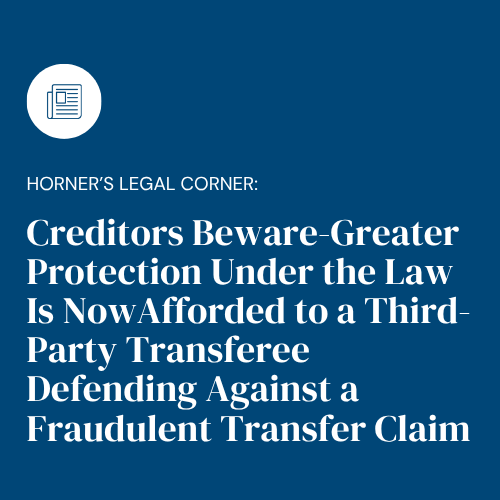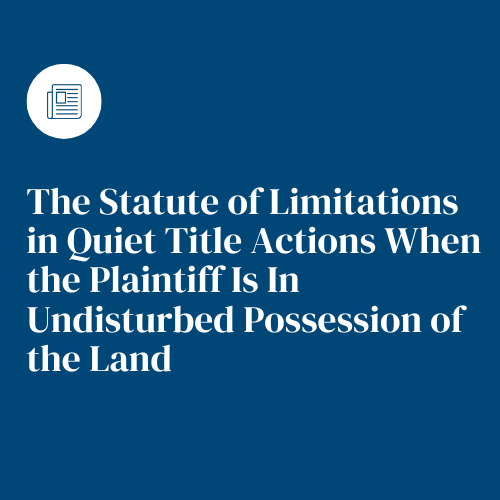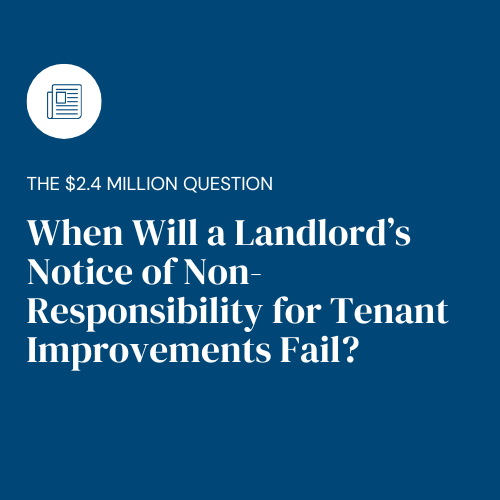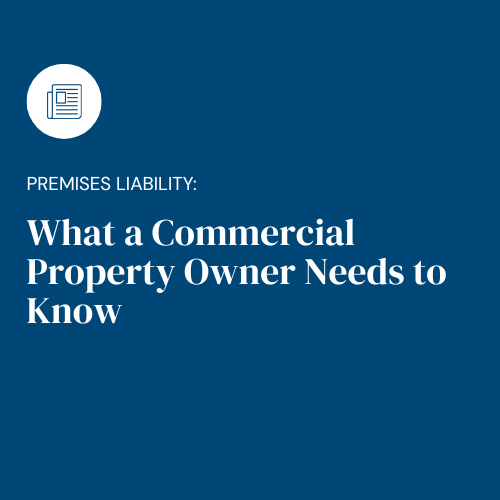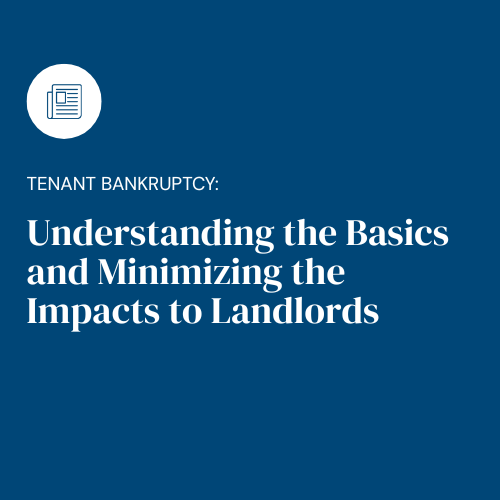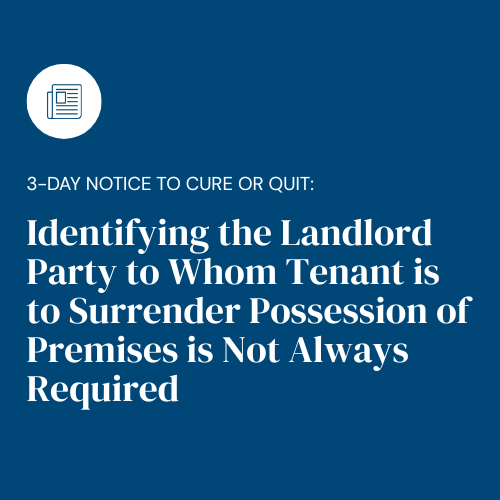California Court of Appeal Holds that a Real Property Sales Agreement May be an Unenforceable Option Contract
CONTACT
Cliff Horner
Email Address: chorner@hornerlawgroup.com
The California Court of Appeal recently issued an opinion challenging the enforceability of real property sales agreements which by their terms create voidable option contracts if lacking in consideration. Given the customary practice of including termination rights in real property sales agreements, we think the Court's decision is particularly important to assist both buyers and sellers from avoiding entering into seemingly valid real property sales agreements only to later find that the agreement is legally deficient and unenforceable.¹
In Steiner v. Thexton, 2008 Cal. App. LEXIS 784 (3d Dist. 2008; C054605), the California Court of Appeal for the Third Appellate District ruled that the seller under a real property sales agreement was not legally required to sell the property to the buyer since the terms of the agreement created an option contract in the buyer's favor which the Court deemed to be void for lack of consideration. According to the agreement, the seller agreed to sell the property to the buyer if the buyer elected to purchase the property after pursuing certain governmental approvals and permits which would be required should the buyer purchase the property and later decide to subdivide it. The terms of the agreement did not compel or require the buyer to actually obtain the approvals and permits; the buyer could simply abandon its efforts by providing notice to the seller. Further, the buyer's obligation to purchase the property was ultimately conditioned on the buyer's satisfaction or waiver of certain contingencies, including the buyer's right to terminate the transaction in its sole and absolute discretion. The Court concluded that because the seller agreed to sell the property on specified terms and kept the property off the market for other potential buyers all while the buyer could simply walk away from the deal without the incursion of any monetary or other legal detriment, the agreement was not a contract of purchase and sale but an option contract void for lack of consideration. The Court's decision came in spite of the buyer's contention that (i) certain small payments made by the buyer to the seller established sufficient consideration and (ii) failure to enforce the agreement would force the buyer to suffer an injustice for having performed in reliance on the transaction. According to the Court, the small payments made by the buyer to the seller were not paid for the grant of an option but were intended to be applied to the purchase price or, in the alternative, returned to the buyer if the purchase was not consummated. Further, the Court noted that even if the buyer had performed the majority of the work to obtain the necessary county approvals and permits to later subdivide the property, no injustice would result since the buyer ultimately retained the right to walk away from the agreement at any time prior to the close of escrow without impunity.
In light of Steiner v. Thexton, the parties to a real property sales agreement must always keep in mind that the substance of a document, more than the name or what the document is called is dispositive in determining the parties' intent. While the buyer and seller in this case may have intended to enter into a legally binding real property sales agreement, by failing to recognize that the terms of the agreement created a voidable option contract, the seller was not obligated to perform and the buyer lost the right to purchase the property. With court's usually only able to rely on the terms of an agreement to determine the parties' intent, mere semantics can oftentimes lead to unintended consequences which, given proper preparation and clarity of intent or purpose, can otherwise be avoided.
Subscribe to Horner Law Group Mailing Lists
Get the latest significant legal alerts, news, webinars, and insights that affect your industry.





